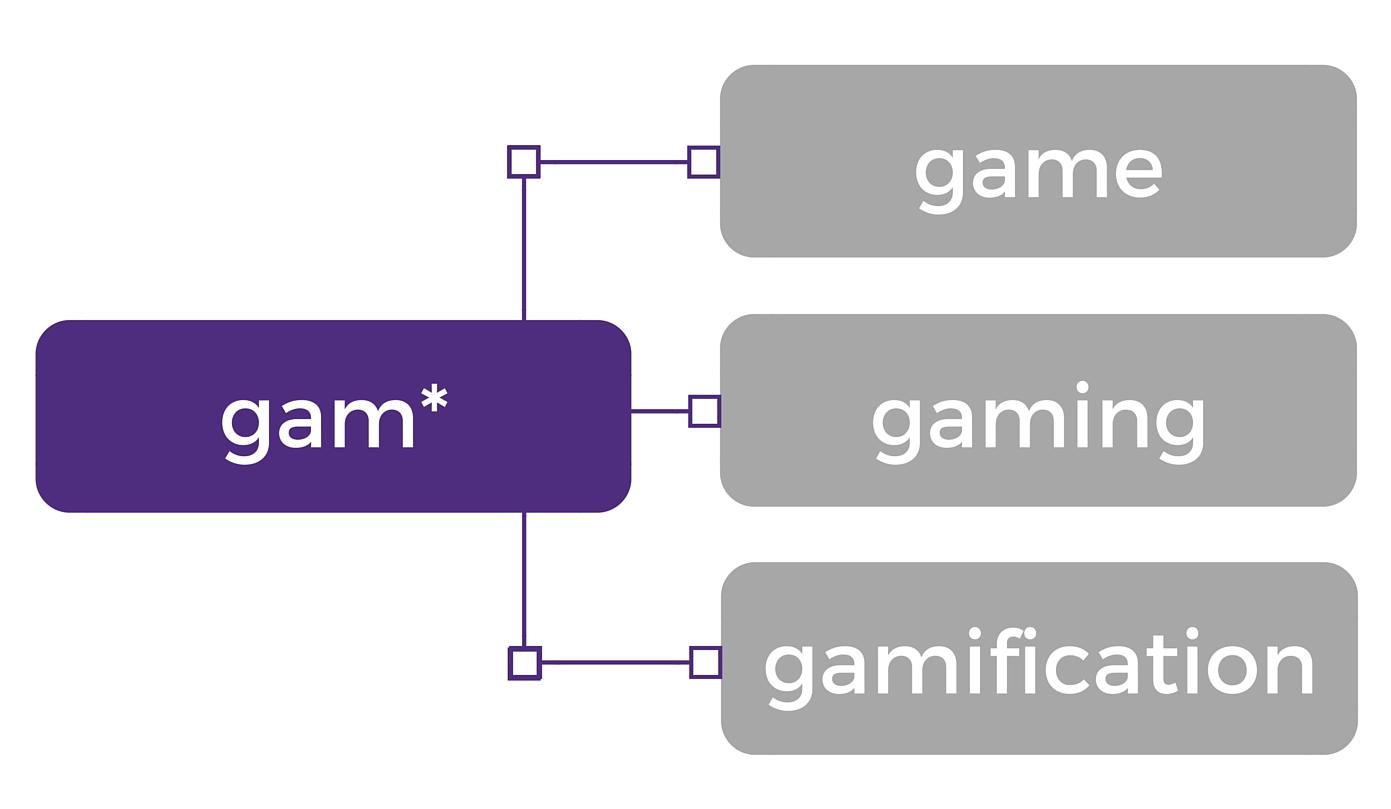Advanced Tips for Database Searching
To become a savvy online searcher, use some commons search techniques that can be applied to almost any database or search engine. The techniques described below will enable you to effectively retrieve relevant information from databases. You will be learning about:
- Boolean Operators
- Truncation, Wildcards, & Phrases
- Limits & Filters
Boolean Operators
Boolean operators connect your search terms together to either narrow or broaden your set of results. The three basic operators are AND, OR, and NOT.

Use AND in a search to:
- narrow your results
- tell the database that all search terms must be present in the results
Example: cloning AND ethics AND humans will only capture results that mention all of these terms.
Use OR in a search to:
- connect two or more similar concepts
- broaden your results
- tell you the database that any of the search terms can be present in the results
Example: cloning OR genetics OR reproduction will capture results that mention any of these terms.
Use NOT in a search to:
- exclude words from your search
- narrow your search
- tell the database to ignore concepts that may be implied by your search terms
Example: cloning NOT sheep will capture all results that mention cloning minus any results that mention sheep.
Truncation, Wildcards & Phrases

Truncation
Truncation is a technique that broadens searches to include various word endings and spellings. To use truncation in a search, enter the root of a word and put the truncation symbol at the end. The database will return results that include any ending of that root word. For this reason, it is best not to use truncation on keyword that has a very common root (e.g. gen* for genes), or that is very likely yield irrelevant variations (e.g. anim* = animal, animated, anima, animosity, anime).
Example: child* = child, child's, children, children's, childhood
Wildcards
Wildcards substitute a symbol for one letter or word. This is useful if a word is spelled in different ways, but still has the same meaning.
Example 1: wom!n = woman, women
Example 2: colo?r = color, colour
Preferred truncation and wildcard symbols vary by database, but common symbols include *, !, ?, #. For assistance identifying a resource's preferred truncation symbol, look for the resource's "Help" documentation, or contact a librarian using UW Libraries' AskUs Links to an external site. chat service.
Phrase
Phrase searching allows you to specify that adjacent words be searched together instead of as single words. To do this, use parentheses or quotes around search words.
Example: "genetic engineering" will return only results that contain this exact and entire phrase.
Limits & Filters
Limiters and filters allow you to narrow the focus of your search so that the information retrieved is limited according to the values you select. Each database will vary slightly, but all will have a variation of options to limit your search. Limiters can be commonly found in Advanced Search settings, as well as on the left or right side of the search results.
Common filters include:
- Full-text: selecting this filter will retrieve only results with full-text available
- Source/document type: academic journals, magazine, newspaper, trade publications, etc
- Peer-reviewed: will retrieve only items that have been peer-reviewed
- Date published: use this option for materials published within a specific date range
- Subject: some databases will give you options for narrowing your search within a specific field of study